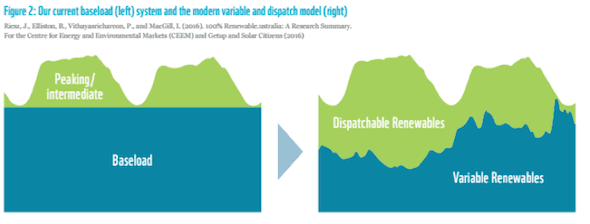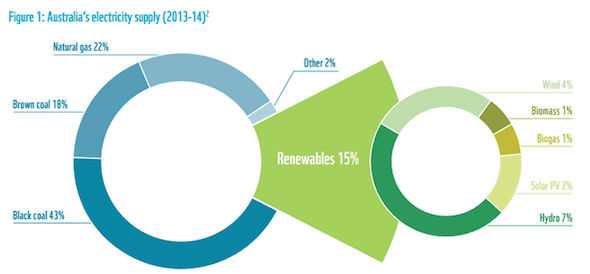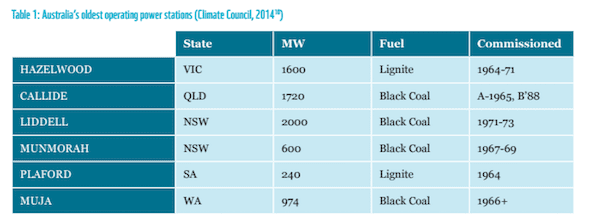Ghana's first President, Osagyefo Dr. Kwame Nkrumah, believed in the power of science and technology to transform Ghana.
How right he was: Technological advances in the renewables sector could indeed transform Ghana's economy, by making our national economy's private -sector more competitive - by providing businesses with inexpensive renewable energy through off-grid utility-scale and micro-grids with storage.
As we speak, the technological advances made thus far, in the renewables sector of the global power industry, in terms of energy storage, if adopted here, could have a direct impact on the achievement of many of Ghana's sustainable development goals.
For starters, our hard-pressed nation would not have to worry about finding money it does not have, on a regular basis, to purchase either gas or light crude oil to power Ghana's thermal power plants, if we relied on 100% renewable sources for our electricity supply, would we? Food for thought.
Could the money thus saved not be channeled into expanding Ghana's infrastructure, for example? And would that not attract more investment into Ghana - which would create jobs for young people in our country?
And will 100% renewable energy sources powering Ghana, not stop the siphoning off of taxpayers' money into private pockets, by the well-connected crooks in the system, benefitting from the purchase of gas and light crude oil to fire Ghana's thermal power plants - who line their pockets with kickbacks from the crony-capitalists who have a vested interest in the continuation of that particular racket, which is milking Mother Ghana dry, so?
Each such blow dealt to the phenomenon of high-level corruption, makes resources available for investment in other areas of our national life, such as public healthcare and educational institutions - expanding access to both of which will help improve living standards in Ghana yet further.
That is why affordable electricity made possible by power generation from 100% renewable sources must be a national goal - and ought not to be regarded as a pipedream of cranks.
What stops our leaders from convincing the Shenzan Energy Group (SEG) to partner a consortium of Ghanaian and Chinese entrepreneurs to build the worlds biggest offshore wind energy farm with giant wind turbines to generate say 10,000 megawatts of electricity - instead of allowing SEG to build coal-fired power plants here?
Could our nation not earn foreign exchange exporting the excess power to our neighbours - and help improve our trade balance? Ditto improve our balance of payments? And will that not help strengthen and stabilize the Ghana cedi?
The simple reason why we have posted as many as three culled articles in a row, from RenewEconomy (including the last one by Sophie Vorrath, which is posted below this introduction), is that we are keen to help get a national conversation about the potential the renewable energy sector has to provide reliable and affordable electricity, for our country.
When one reads articles, about the future for renewable energy iin nations such as Australia, one cannot help but be convinced that there is an urgent need for a national conversation in Ghana, too, about developing our national economy's power industry's renewables sector.
Clearly, if we are to prosper as a people, and achieve Ghana's sustainable development goals, we must aim for 100% electricity, from renewable sources.
The time has therefore come for Ghana's fence-sitting middle classes to take a long-term view of Ghanaian society's future - and start campaigning now for a lower electricity tariff for tomorrow's Ghana.
They must focus on fighting to bring about an era of affordable electricity in Ghana, in the not too distant future, by demanding that all our nation's political parties commit to ensuring that the renewables sector of our power industry, grows to make a substantial contribution to the power generation-mix, in our homeland Ghana, as soon as practicable.
Our last culled RenewEconomy article, by Sophie Vorrath, clearly shows how radical ideas and lateral thinking can help ensure sustainable futures for nations whose ruling elites are farsighted.
That is what is needed here to help secure our nation's future - one powered mainly by off-grid utility-scale and micro-grids delivering electricity produced from 100% renewable sources, by private power companies, which are partnerships between Ghanaian entrepreneurs and renewable energy companies from nations such as Australia.
Please read on:
Australia could be 100% renewable – with no “baseload” – by 2035
By Sophie Vorrath on 8 June 2016
As plans emerge for the development of a massive new “baseload” solar thermal and storage plant to “replace” coal in South Australia,
a new report from WWF Australia has questioned the very concept of
“baseload”, arguing that this model of power generation is made
redundant by a 100% renewable energy grid.The report, published on Wednesday, argues that Australia could completely and effectively replace the nation’s mostly coal-based “baseload” power generators by harnessing huge volumes of renewable energy – using existing technologies, including battery storage – distributed across the country.
“The reality is that electricity usage is variable, demand changes throughout the day and night, and Australia doesn’t need baseload power generation,” the report says.

“With key market reforms in place to manage the energy transition, Australians can comfortably let go of the mindset of ‘baseload’ and have confidence in a modern, reliable, renewable energy sector powering our future.”
This “mindset” that renewable energy technologies like solar PV and wind don’t “do baseload” due to the intermittent nature of the resource has long been a barrier to the wholesale shift to renewables.
Of course, the argument – most commonly touted by the fossil fuel industry and coal lobbyists, and sometimes even by proponents of solar thermal technology – is increasingly being undermined by the onset of cheaper and more efficient battery storage.
But regardless of the rise of energy storage, many energy market analysts and players argue that the entire model of baseload energy supply is being made redundant by the shift to cheap and easy distributed renewables and increasingly sophisticated energy management software.
Certainly this is the thinking in places like Denmark, which is a functioning example of modern energy supply without baseload. But it is also the thinking in China, which still has a huge reliance on coal-fired power.
As the report notes, and we have reported here before, that much is evident in the February comments of the chairman of the State Grid (China’s biggest network owner), who said there was “no technical challenge at all” preventing grids from running smoothly without baseload supply. “The only hurdle to overcome is mindset.”
In Germany, 50 Hertz, the company responsible for more than one-third of Germany’s electricity grid, says there is no issue absorbing high levels of variable renewable energy such as wind and solar, and grids could absorb up to 70 per cent penetration without the need for storage.
And the message is the same: “It’s about the mindset,” said Boris Schucht, the company’s CEO. “Ten to 15 years ago when I was a young engineer, nobody believed that integrating more than 5 per renewable energy in an industrial state such as Germany was possible.”
In the region Schucht operates in, though, 46 per cent of the power supply comes from wind and solar. Next year it will be more than 50 per cent.
In Australia, meanwhile, the mindset remains stubbornly in place, and yet 100 per cent renewable energy has already become a reality over given periods in given states, including South Australia and Tasmania.

The report notes that the ACT will soon rely on 100% renewable energy, with its policy plans to achieve this by 2020 using a mix of wind and solar, and existing large hydro.
But the report also notes that to support this transition further, it is vital that Australia urgently review its energy market frameworks to integrate them with climate change policies.
This very idea – that National Electricity Market laws should include an environmental objective, to keep Australia’s grid more closely aligned with its Paris climate commitments and national efforts to cut power sector emissions – was, however, recently rejected by the federal government.
The recommendation, made by the Australian Greens as part of a federal government inquiry into the performance and management of electricity network, was aimed at addressing community concerns about rising electricity prices and the reasons behind them.
Labor has also promised a review into the National Electricity Market and its “objectives”, and wants environment to be included. Without it, Labor climate spokesman Mark Butler said earlier this week, the market is not fit for purpose and has no signal to decarbonise.
Which brings us back to mindset: “In Australia we are used to the idea of ‘baseload energy’ being the energy that ensures we can flick the lights on at any point in the night, but that’s old thinking,” said Adrian Enright, Climate Change Policy Manager at WWF-Australia.
“The problem is the bulk of our baseload energy comes from high polluting, ageing coal fired generators. Some of Australia’s existing baseload capacity was built before man first landed on the moon.

75% of Australia’s existing coal generator fleet is passed its design life, according to the WWF report.
In the lead up to the federal Election, WWF-Australia is calling on all parties to commit to a transition to 100% renewable electricity by 2035."
End of culled RenewEconomy article by Sophie Vorrath.

No comments:
Post a Comment